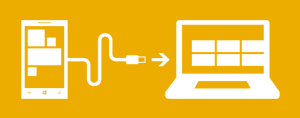Windows 7 was the best Windows OS Microsoft ever built. It attracted and impressed a lot of people. Be it end users or even the technology professions, they all just loved the versatility of Windows 7. Then came the Windows 8 where Microsoft risked something by tried to combine the desktop UI with tablet/touch UI and called it the Modern UI.
It was based on the same design pattern on which the Windows Phone was building up but for desktops and tablets. People didn’t really like this and started calling Windows 8 the WORST Windows OS ever. Worse than Windows Vista. Microsoft took things into their own hands and fixed a lot of things in the major update that was provided for free to people, that is, the Windows 8.1.
Windows 8.1 came with many fixes and stability improvements that were lacking in the Windows 8.
A few weeks ago, Microsoft decided to announce their upcoming Windows OS version that is the Windows 10. Surprising, right? We all expected it to be the Windows 9 but here it was, Windows 10, right in front of us. Microsoft said they were considering the Windows 8.1 which was a major overhaul to its predecessor.
Now, in this post I will be writing about the Top 5 features of the upcoming Windows 10. I will start from the last and move on to the top feature. Windows will now be able to detect whether it is being installed on a tablet, a PC or a hybrid system. It will now activate it’s Desktop or mobile features according to the system it is being installed on.
Thus, the system in which Microsoft was trying to combine the Desktop and tablets has been perfected in a better way and now this Hardware Detection can decide what features to enable on a specific type of system.
5. Hardware Detection:
Windows will now be able to detect whether it is being installed on a tablet, a PC or a hybrid system. It will now activate it’s Desktop or mobile features according to the system it is being installed on.
Thus, the system in which Microsoft was trying to combine the Desktop and tablets has been perfected in a better way and now this Hardware Detection can decide what features to enable on a specific type of system.
4. Snap Assist:
Windows will help you group and snap multiple windows together on the same screen from now on and this feature is called the Snap Assist.
Windows 10 will now suggest which apps or programs you can snap and it will make use of your desktop space much efficient and useful.
3. Run Universal Apps in Desktop View:
You will now be able to run native Windows mobile and tablet apps from the Windows Store in desktop view instead of the fullscreen view that it runs in on the Windows 8 and Windows 8.1.
2. Task View:
You can now take a look at all your open apps and programs in the same screen. After taking a look you can use the Snap Assist to organize the windows properly on the screen to use the screen real estate more efficiently. That’s Task View for you.
1. The New Start Menu:
This has to be on the top of the list. The Start Menu is the most useful features of a Windows OS and it actually defines the whole system. So, Microsoft has brought our lovely Start Menu back in the Windows 10. You can now choose to have a full blown full screen start menu or a responsive one like we are used to since ages.






Post a Comment